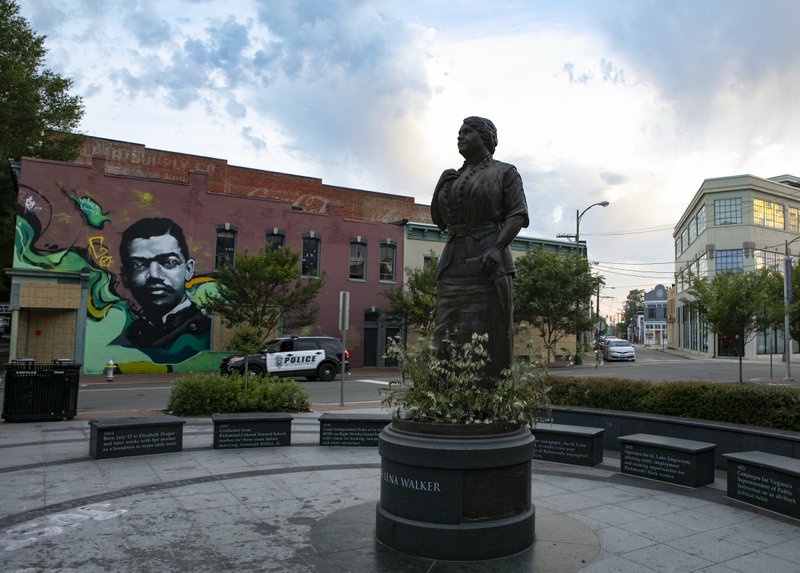Marshe Wyche arrived at her store as dawn broke, anxious to see what the night's protests might have brought. The door had been smashed and windows shattered, and a woman was reaching through one of the jagged openings to nab a potted plant.
As Wyche stood Sunday inside Rumors Boutique, the consignment shop she co-founded 13 years ago on a stretch of Richmond, Va., once known as "Black Wall Street," she tried to make sense of it all.
"To see my store smashed in -- it was really scary," said Wyche, 35, who is black. "But at the same time, I am those protesters: I look like them, I'm angry like them. I understand."
Businesses across the country have been looted and vandalized as streets filled with police and crowds of protesters expressing anger over the death of George Floyd, a black man, in police custody. Many retailers, including Target and Nordstrom, had to shutter some stores amid the chaos. But for small-business owners such as Wyche, the stakes are much higher.
[CORONAVIRUS: Click here for our complete coverage » arkansasonline.com/coronavirus]
The number of black-owned businesses spiked 35% from 2007 to 2012, the most recent data available, compared with the 2% increase for all businesses, Census Bureau data shows. But economists and business owners say many of those gains could be wiped out by the fresh challenge of civil unrest after the one-two punch of the novel coronavirus and ensuing recession.
"Small businesses, particularly black and brown ones, have been slipping through the cracks of the federal response," said Darrick Hamilton, executive director of the Kirwan Institute for the Study of Race and Ethnicity at Ohio State University. "The number-one hurdle is capital itself -- a racial wealth gap where the typical black household has 10 cents on the dollar for the typical white household.
As many as 95% of black-owned businesses were shut out of the first round of the government's Paycheck Protection Program meant to support small businesses during the pandemic, according to estimates from the Center for Responsible Lending, a nonpartisan research organization. Many of the nation's 2.6 million black-owned companies are "microbusinesses" with few employees and even fewer connections to banking institutions.
Wyche and Casey Longyear, who is white, opened their boutique in June 2007, just as the economy was tipping into recession. They tried to get loans but, in their early 20s, didn't have enough credit, so they used up their savings and maxed out their credit cards. They bought $10,000 worth of merchandise and got started.
They lived in their store for the first two years, sharing a twin-size mattress in a crawl space and showering at the nearby YMCA. It took nearly seven years before they turned a profit.
She and Longyear had just hit their stride: They opened two stores in North Carolina and saw sales hit $1.3 million last year. They were expecting a 30% jump in revenue this year until the pandemic hit.
The store lost nearly all its shoppers overnight after students returned home. Wyche and Longyear laid off all their 40 employees. Monthly revenue, typically around $80,000, fell to $80.
"It has been an uphill battle trying to survive as a business during covid-19," Wyche wrote on a GoFundMe page that has raised more than $37,000 so far. "After the damage last night, it feels like we are trying to climb that hill with broken limbs and bleeding fingers."
In Charlotte, N.C., James Mack is wondering how much more his business can take. Sales at his jewelry and watch store, Epic Times, have tanked since March, when the pandemic forced him to shut down operations. The business had been reopened for a week when he was jolted out of bed early Saturday by security camera footage of his store being damaged.
"I got up and ran to my store as fast as I could," said Mack, 39, who is black. "My windows were busted up, my door was broken in, my cash registers were destroyed. There's no way I can get back to business right now."
Business on 06/06/2020
